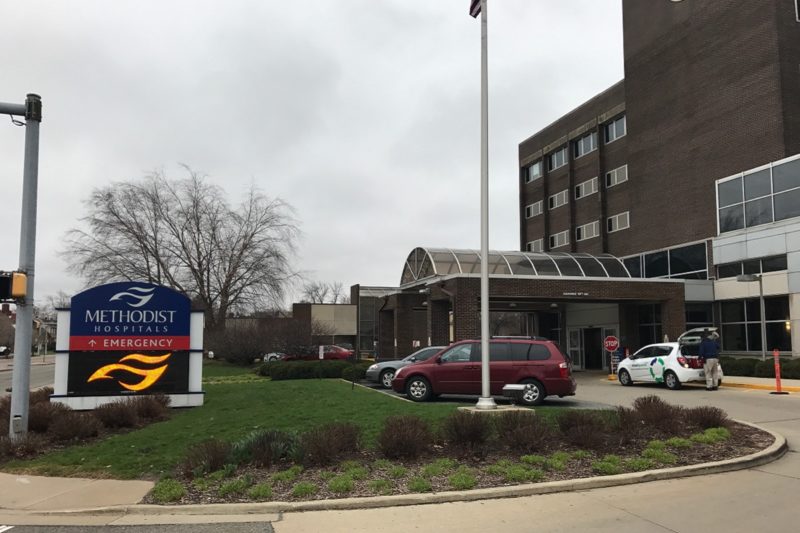Catholic Hospital Merger That Threatened Reproductive Care in Gary, Indiana, Falls Through
The merger would have brought Methodist's hospitals in Gary and neighboring Merrillville under Catholic rules that generally restrict access to contraception, sterilization, abortion, certain fertility treatments, and end-of-life care.

Rev. Dena Holland-Neal was in a celebratory mood late Thursday afternoon.
For months, Holland-Neal, a pastor at Trinity United Church of Christ in Gary, Indiana, has been fighting alongside other community members to stop a proposed merger between the Catholic health system Franciscan Alliance and Methodist Hospitals, which runs Gary’s only hospital.
The merger would have brought Methodist’s hospitals in Gary and neighboring Merrillville under Catholic rules that generally restrict access to contraception, sterilization, abortion, certain fertility treatments, and end-of-life care. Holland-Neal worried the restrictions would have a particularly profound impact on the city, where 36 percent of residents live in poverty and public transportation is limited.
Days after Rewire published an examination of the proposed merger in May, about 100 people reportedly attended a town hall meeting to express concerns about reproductive health-care access and other issues.
On Thursday, Methodist announced that the merger talks had been suspended, saying in a press release that they had been “unable to align on critical issues around the financial, operational and clinical service line implications of the proposed partnership.”
“These discussions were compounded by headwinds in the healthcare industry,” the press release read. “We are disappointed that this partnership did not come to fruition.”
Franciscan Alliance president and CEO Kevin Leahy said in a written statement that “the two organizations were unable, at this time, to develop a plan that was financially viable.”
When she saw the headline, Holland-Neal told Rewire she was overjoyed.
“I was like, ‘Yes! yes! yes!’ And the people I was with, they were like, ‘Are you OK? Are you OK?’” Holland-Neal said. “I was like, ‘Yes, I am!’ …. I am elated.”
“I’m just thrilled beyond belief,” Rev. Marie Siroky, a United Church of Christ minister, chaplain, and social justice advocate told Rewire. “This was never a debate on theology, this was always about accessible health care, and especially about accessible health care for women.”
The long history of racism in Gary compared to the neighboring, whiter town of Merrillville was another key concern among opponents of the merger. Franciscan had reportedly proposed building a new hospital in Gary in exchange for ending a decades-old federal consent decree based on a civil rights lawsuit that requires Methodist to retain a level of service parity between its hospitals in Merrillville and Gary.
Unlike Methodist, Franciscan, one of the largest Catholic health systems in the Midwest, is not unionized.
“Our interests were and remain providing quality healthcare to our communities and good union jobs that provide living wages and benefits,” James Muhammad, spokesperson for SEIU Healthcare Indiana, which represents Methodist workers, told Rewire in an email Thursday.
Franciscan, which runs 14 hospitals, recently acquired another hospital building in nearby Hobart, Indiana. About one in four acute-care hospital beds in the state operate under Catholic restrictions.

